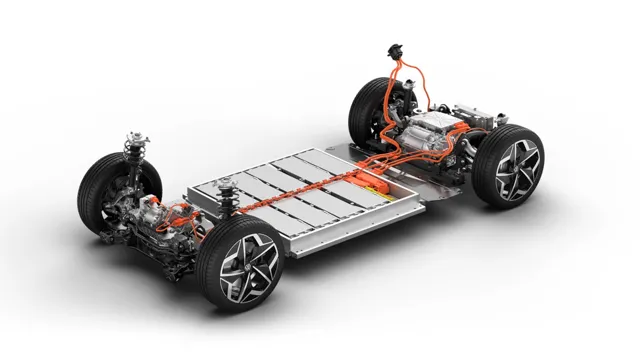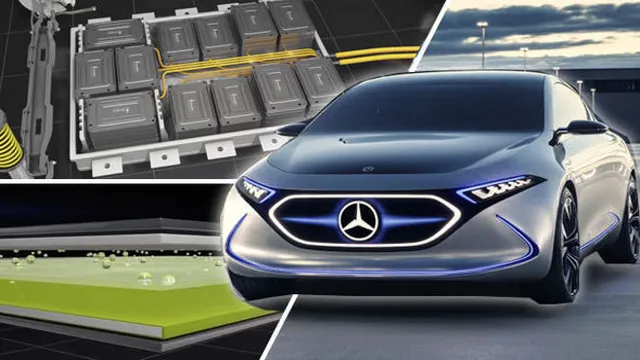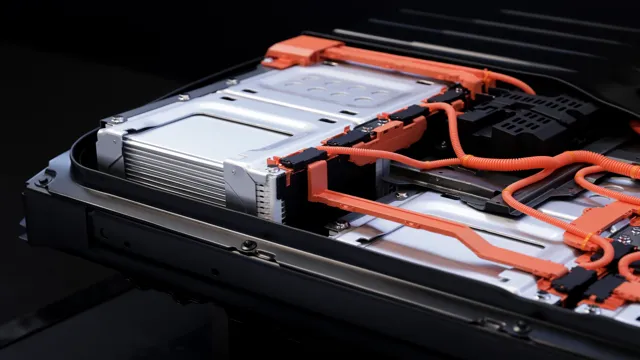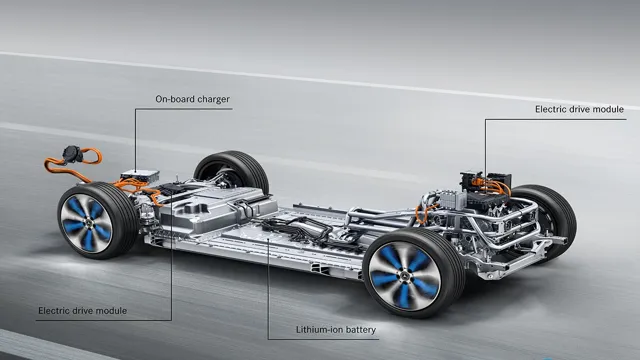Revolutionizing the Future: Reducing Carbon Footprint with Electric Car Batteries
Electric cars are becoming increasingly popular as people look for ways to reduce their carbon footprint and minimize their impact on the environment. However, there has been a lot of debate about whether electric cars are truly environmentally friendly and if they can really reduce carbon emissions. In this blog, we will examine the carbon footprint of electric cars and explore the factors that contribute to their environmental impact.
Is driving an electric car really as environmentally friendly as we think? Let’s find out.
Introduction
Electric cars are becoming popular because of the increasing environmental concerns and the need for sustainable mobility solutions. However, we should not overlook their carbon footprint. Although electric cars produce fewer emissions while driving, the production of batteries has a considerable carbon footprint.
The extraction and transportation of raw materials, fabrication of the battery cells, and the final assembly require energy, often from non-renewable sources. Also, the disposal of batteries at the end of their life cycle may release toxic waste. Therefore, it is crucial to consider the overall life cycle CO2 emissions of electric cars, from production to disposal, before determining their environmental impact.
Various studies have suggested that even with the higher CO2 emissions during the manufacturing phase, electric cars emit fewer greenhouse gases than conventional cars over their lifetime.
Why Discuss Electric Cars?
Electric Cars Electric cars have been rapidly increasing in popularity over the past few years. With concerns about climate change and the environment, more and more people are turning to electric vehicles as a more eco-friendly alternative to traditional gas-guzzling cars. In addition to being better for the environment, electric cars also offer a number of other benefits.
They are typically cheaper to run, require less maintenance, and are often more convenient to charge than traditional cars that require frequent trips to the gas station. In this blog section, we will explore the many reasons why electric cars have become such a hot topic and why it is important to discuss them in today’s world.
What is Carbon Footprint?
Carbon footprint refers to the total amount of greenhouse gases, primarily carbon dioxide, emitted by an individual or organization’s activities or products. It’s calculated by considering the energy used in various aspects of daily living, such as transportation, housing, and consumption patterns. The larger the carbon footprint, the greater the impact on the environment and climate change.
To reduce carbon footprints, individuals and organizations can adopt sustainable practices such as using renewable energy and reducing consumption of resources such as water and electricity. By minimizing carbon footprints, we can move towards a more sustainable and environmentally conscious future.
Battery Technology and Carbon Footprint
Electric cars are a great way to reduce your carbon footprint and help the environment. However, the batteries used in these vehicles can have their own environmental impact. While they don’t produce emissions directly, the production of electric car batteries requires a lot of resources and can contribute significantly to the carbon footprint of the manufacturing process.
The good news is that battery technology is improving, with companies working to develop more sustainable and environmentally friendly batteries for electric vehicles. These new batteries use fewer resources and are built with more sustainable materials, helping to reduce their overall impact on the environment. As electric car technology continues to advance, we can look forward to seeing even more improvements in battery sustainability and reduced carbon footprints from electric vehicles.
Battery Types
Battery types have been evolving over the years, and with the need to reduce carbon footprint, battery technology has become an important factor. Lithium-ion batteries have been the most popular type used in electric vehicles, but they still generate high levels of carbon emissions during production. Solid-state batteries made of materials like sodium, magnesium, and fluoride offer the potential to reduce carbon footprint compared to conventional lithium-ion batteries.
These types of batteries also offer higher energy density, longer lifespan, and improved safety, making them more efficient and sustainable. It’s worth considering the carbon footprint that comes with the production of batteries when choosing the right battery type, as the environment continues to be a pressing concern.
Carbon Footprint of Battery Production
Battery technology has become a crucial component of the transition toward sustainable energy consumption. However, the production of batteries has an environmental impact. The carbon footprint of battery production varies depending on the type of battery, but it typically involves greenhouse gas emissions, water consumption, and the depletion of natural resources.
For example, the production of lithium-ion batteries emits a significant amount of carbon dioxide, mainly due to the energy required to extract and refine the materials. This highlights the need for more sustainable and efficient production methods, such as using renewable energy sources or developing new battery chemistries that require fewer resources. Additionally, recycling and reusing batteries can reduce their carbon footprint and minimize waste.
It is essential to consider the life cycle of batteries and their environmental impact when evaluating their role in the transition toward a low-carbon economy.
Carbon Footprint of Battery Disposal
Battery technology has advanced significantly in recent years, with a focus on creating more sustainable and eco-friendly options. However, despite these advancements, the disposal of batteries still has a significant impact on the environment. When batteries are not disposed of properly, they can release harmful chemicals into the soil and water, ultimately contributing to the carbon footprint.
This is because batteries are made up of a range of materials, including metals, plastics, and chemicals. When they are not disposed of correctly, these materials can release greenhouse gases that trap heat in the atmosphere. It is therefore important to properly dispose of batteries through recycling or other sustainable methods to reduce our carbon footprint and protect the environment.
By doing so, we can help to reduce our impact on the planet and create a more sustainable future.
Comparing Electric Cars to Gasoline Cars
When it comes to choosing between an electric car or a gasoline car, one of the main factors to take into consideration is the carbon footprint. Electric cars emit less carbon dioxide than gasoline cars, making them a more environmentally friendly option. However, this doesn’t mean that electric cars are completely emission-free.
The production of batteries for electric cars requires a significant amount of energy, which comes from burning fossil fuels. It’s important to note that the carbon dioxide generated during battery production is less than the emissions from gasoline cars over their lifetime. Nevertheless, it is essential to find ways to reduce the carbon footprint of the production of electric vehicle batteries.
One solution is to use renewable energy sources to power the production of batteries, such as solar or wind power. By doing so, not only will the production process be greener, but it also generates energy that doesn’t release any emissions. By moving towards greener production methods, we can ensure that we can reduce our carbon footprint while still enjoying the advantages of using electric cars.
The Benefits of Electric Cars
When it comes to comparing electric cars to their gasoline counterparts, one of the biggest benefits is their impact on the environment. Electric cars produce zero emissions, making them a much cleaner option for the planet. Additionally, electric cars tend to be much cheaper to operate in the long run, as the cost of electricity is typically lower than gasoline.
And let’s not forget about the convenience factor – never again will you have to visit a gas station or deal with the unpleasant smell of gasoline. Of course, there are still some limitations to electric cars, such as their charging times and range, but advancements in technology are quickly making these concerns a thing of the past. Overall, the benefits of electric cars are undeniable – they’re better for the environment, more cost-effective, and much more convenient.
So what are you waiting for? Join the electric car revolution today!
The Carbon Footprint of Gasoline Cars
When it comes to the carbon footprint of cars, gasoline vehicles have a much larger impact on the environment compared to electric cars. Electric cars produce zero emissions, while gasoline cars release harmful pollutants into the atmosphere every time they are driven. This means that choosing an electric car over a gasoline car can significantly reduce your carbon footprint.
In fact, studies show that electric cars produce about 60% less greenhouse gas emissions than gasoline cars. So, not only are electric cars better for the environment, but they can also save you money in the long run by reducing your fuel costs. Choosing to make the switch to an electric car can have a positive impact on both the environment and your wallet.
Conclusion
In conclusion, electric cars are an excellent alternative to traditional gas-powered vehicles when it comes to reducing carbon footprint. While battery production itself results in some emissions, using renewable energy to charge those batteries reduces their impact on the environment. So, by driving an electric car, you can help reduce your carbon footprint and show the world that going green can be both smart and stylish.
After all, nothing says “climate-conscious” quite like cruising down the street in a sleek and silent electric vehicle.
FAQs
How is an electric car’s carbon footprint different from a gasoline car’s carbon footprint?
The carbon footprint of an electric car is typically lower than that of a gasoline car because electric cars do not emit greenhouse gases from the tailpipe. However, the carbon footprint of an electric car depends on how the electricity used to power the car is produced.
Do electric car batteries contribute to environmental damage?
Electric car batteries can contribute to environmental damage when they are not disposed of properly, as they contain toxic materials. However, many electric car manufacturers have implemented plans for recycling old batteries to reduce their environmental impact.
Can switching to an electric car reduce my overall carbon footprint?
Switching to an electric car can reduce your overall carbon footprint if the electricity used to power the car is sourced from renewable sources. However, if the electricity is sourced from non-renewable sources, such as coal, the carbon footprint of the car may not be significantly lower than a gasoline car.
Are hybrid cars better for the environment than electric cars?
Hybrid cars can have a lower carbon footprint than gasoline cars but may have a higher carbon footprint than electric cars. Hybrid cars still rely on the combustion of gasoline, while electric cars do not emit greenhouse gases from the tailpipe. However, hybrid cars require less intensive battery production and may be a better option for those who cannot yet make the switch to electric cars.






